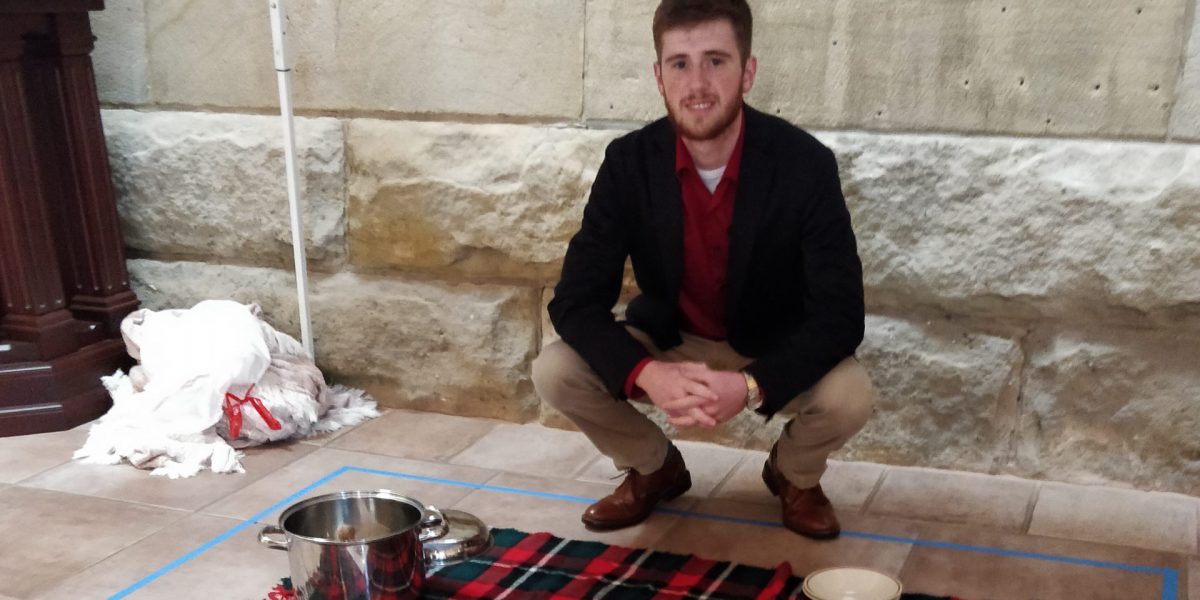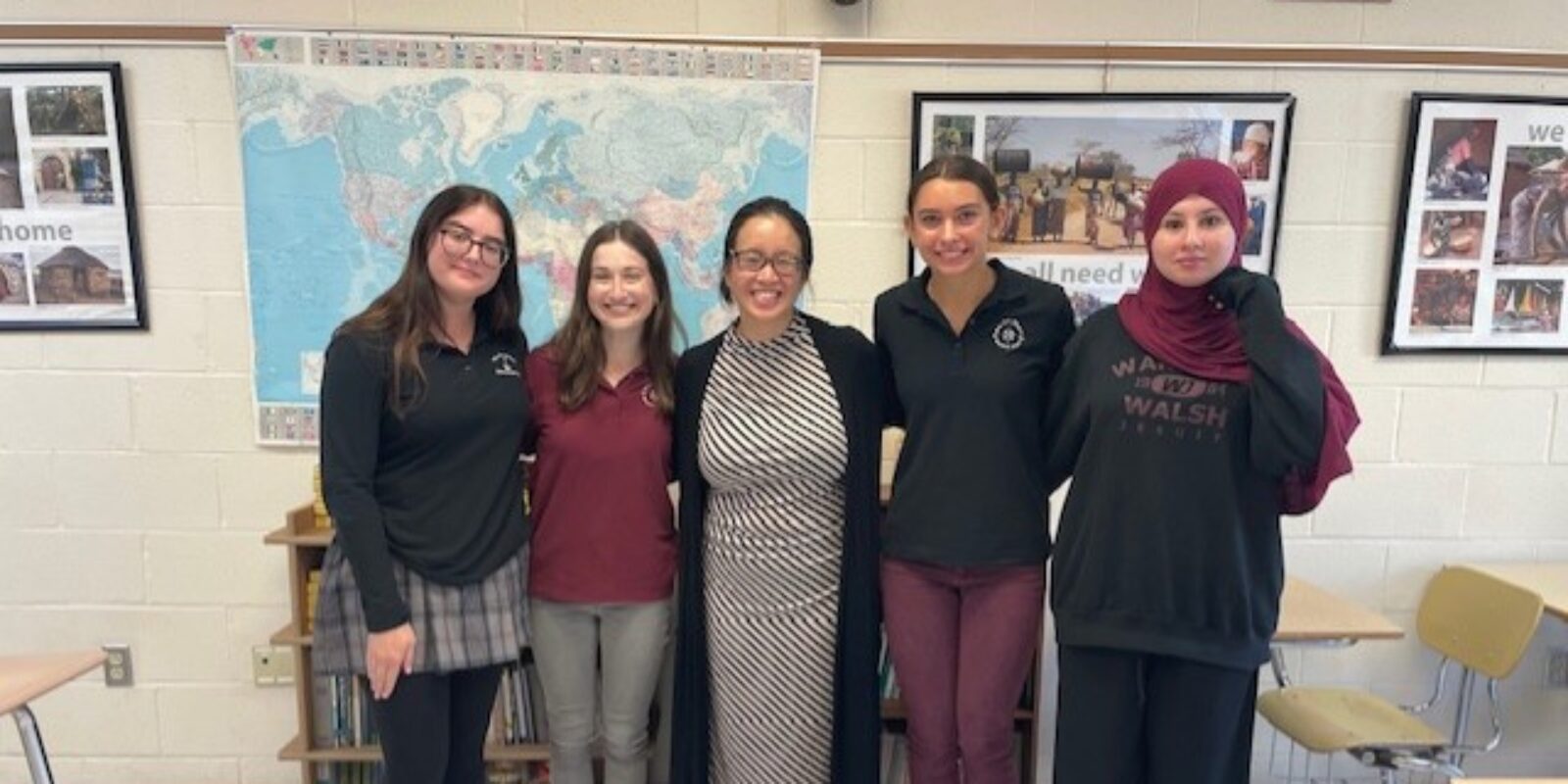USA: Committed to Giving a Voice to the Unheard
21 January 2020

On June 20, communities around the world recognized World Refugee Day by celebrating the achievements and resilience of refugees. Catholic Charities West Virginia hosted a JRS/USA Refugee Simulation: Walk a Mile in My Shoes to showcase the talents of refugees living in their community and educated community members about refugees’ daily living conditions.
The simulation included stations that focused on different aspects of refugees’ lives in refugee camps, such as the border, shelter, food, water, health, and education – as well as information about how participants can advocate and support refugees. Catholic Charities also set up an area displaying the artwork of refugees that their programs serve. At another table, participants could sample a traditional dish prepared by a refugee living in the community at one of the stations. According to Elizabeth Ramsey, the Immigration and Refugee Specialist at Catholic Charities WV, the goal was to celebrate refugees who face numerous hardships and difficult conditions, “they can persevere and make a living for themselves.”
Each of the stations demonstrated the realities of living in a refugee camp to participants. “People who are already very supportive of [Catholic Charities’] refugee program and the refugee plight in general, found value in the event, because it provided a practical aspect that the media doesn’t capture,” Ms. Ramsey said. For instance, a volunteer staffing the border station spoke only Tagalog (a language from the Philippines) as participants entered, in order to show the difficulties presented by language barriers that refugees often face as they flee to another country.
At the food station, participants saw the differences between meals that a typical refugee and typical American eat regularly. Sample plates showed smaller amounts of food and the lack of variety that refugees have due to limited resources. A refugee in a camp only consumes 1,300 calories per day on average, which is 1,200 calories less than an average U.S. adult’s daily intake. In contrast, the food a participant is accustomed to and the lack of options a refugee experiences, made the refugees’ simulation feel more realistic. “It brought tears to my eyes,” said Ms. Ramsey.
The response from the community was overwhelmingly positive. Many people described it as “eye opening” and an opportunity to “shed light” on the issue. There were also several requests to host a simulation at local schools. Catholic Charities WV currently plans to host another one this year on World Refugee Day, to continue celebrating refugees and encouraging West Virginians to learn more about conditions in refugee camps.
What’s one thing you have done or will do in 2020 to help refugees and other forcibly displaced people heal, learn, and determine their own futures? Need some ideas – check out our campaign page to learn more #Do1Thing.


